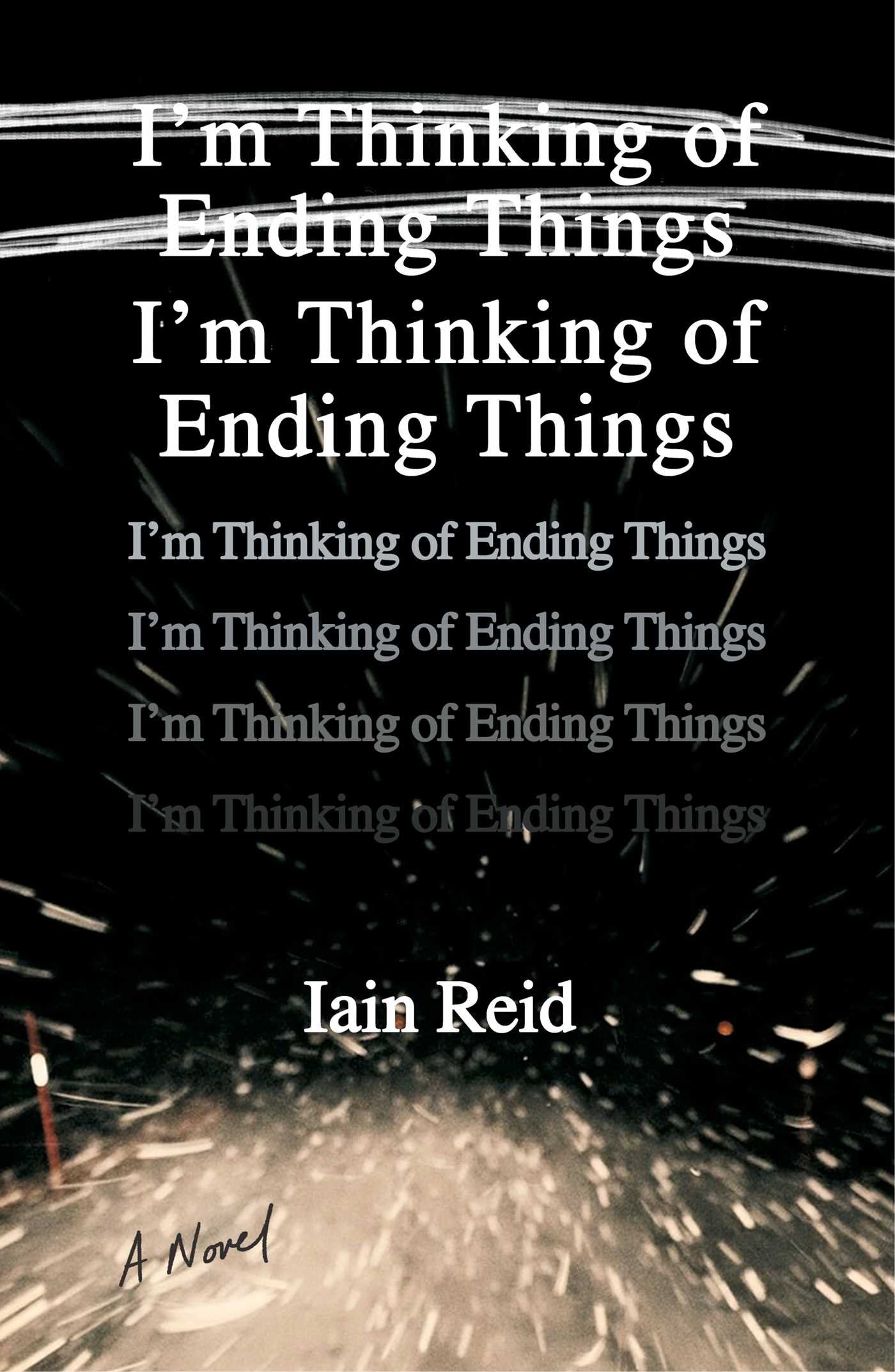Books |
I’m Thinking of Ending Things
Iain Reid
By
Published: Jul 04, 2016
Category:
Fiction
You may not want to read “I’m Thinking of Ending Things,” but you will.
With a pounding heart.
And flying fingers — I read all 210 pages in two hours.
Then you’ll ask yourself: WHAT HAPPENED?
Then you’ll go back to see if you missed anything — well, really, if you missed everything.
And then you’ll tell others: You’ve got to read this. So we can talk about it.
Yes. This is that book — the book you want to put down, and can’t.
For once the publisher’s hype is accurate: “You will be scared. But you won’t know why.”
Which seems stupid. Iain Reid, a Canadian who published two sweet memoirs you’ve never heard of, has created a simple enough story. Two characters: Jake, a young man, and his girlfriend. They met at trivia night in a campus bar. He slipped a note in her purse: “If I had your number, we could talk, and I’d tell you something funny.” Then he’d written his number. That was six weeks ago, maybe seven. Now they’re taking a short road trip so she can meet his parents.
What could go wrong?
[To buy the book from Amazon, click here. For the Kindle edition, click here.]
Start at the beginning. The novel is narrated — interrupted by brief, after-the-fact commentary from people not in the book — by the girlfriend, who is nameless. It starts like this:
I’m thinking of ending things.
Once this thought arrives, it stays. It sticks. It lingers. It dominates. There’s not much I can do about it.
Jake once said, “Sometimes a thought is closer to truth, to reality, than an action. You can say anything, you can do anything, but you can’t fake a thought.”
And here’s what I’m thinking: I don’t want to be here.
And yet… The girlfriend also writes:
I think what I want is for someone to know me. Really know me. Know me better than anyone else and maybe even me. Isn’t that why we commit to another? It’s not for sex. If it were for sex, we wouldn’t marry one person. We’d just keep finding new partners. We commit for many reasons, I know, but the more I think about it, the more I think long-term relationships are for getting to know someone. I want someone to know me, really know me, almost like that person could get into my head. What would that feel like? To have access, to know what it’s like in someone else’s head. To rely on someone else, have him rely on you. That’s not a biological connection like the one between parents and children. This kind of relationship would be chosen. It would be something cooler, harder to achieve than one built on biology and shared genetics.
I think that’s it. Maybe that’s how we know when a relationship is real. When someone else previously unconnected to us knows us in a way we never thought or believed possible.
So smart, so self-aware. They both are. Relationships, philosophy, secrets — they’re getting along so well.
But why is she getting phone calls… from her own number?
Why does she think The Caller is spying on her?
Why are Jake’s parents… weird?
Why is one sentence — What are you waiting for? — repeated and repeated and repeated until it fills four pages?
Why does Jake, when he kisses his girlfriend, call her by another woman’s name?
Why, late at night, on the way home, do they stop in a snowstorm at a Dairy Queen and then, at a seemingly abandoned school?
And, at the end, what happens? To whom? By whom? And why?
After the end, in italics:
— It’s not that simple. I don’t know. Here. Look at this.
— What is all this? This is a lot of pages? Is this what he wrote?
— Yes. You should read it. But maybe start at the end. then circle back. First, though, I think you better sit down.
Follow directions. Read it again. And only then, if you must, look at two cheat sheets (which offer some spoilers, or what might be spoilers but might not be): After Things End and a Book Group Guide.
And if you figure it out… ell me. I’ll share. Maybe.


